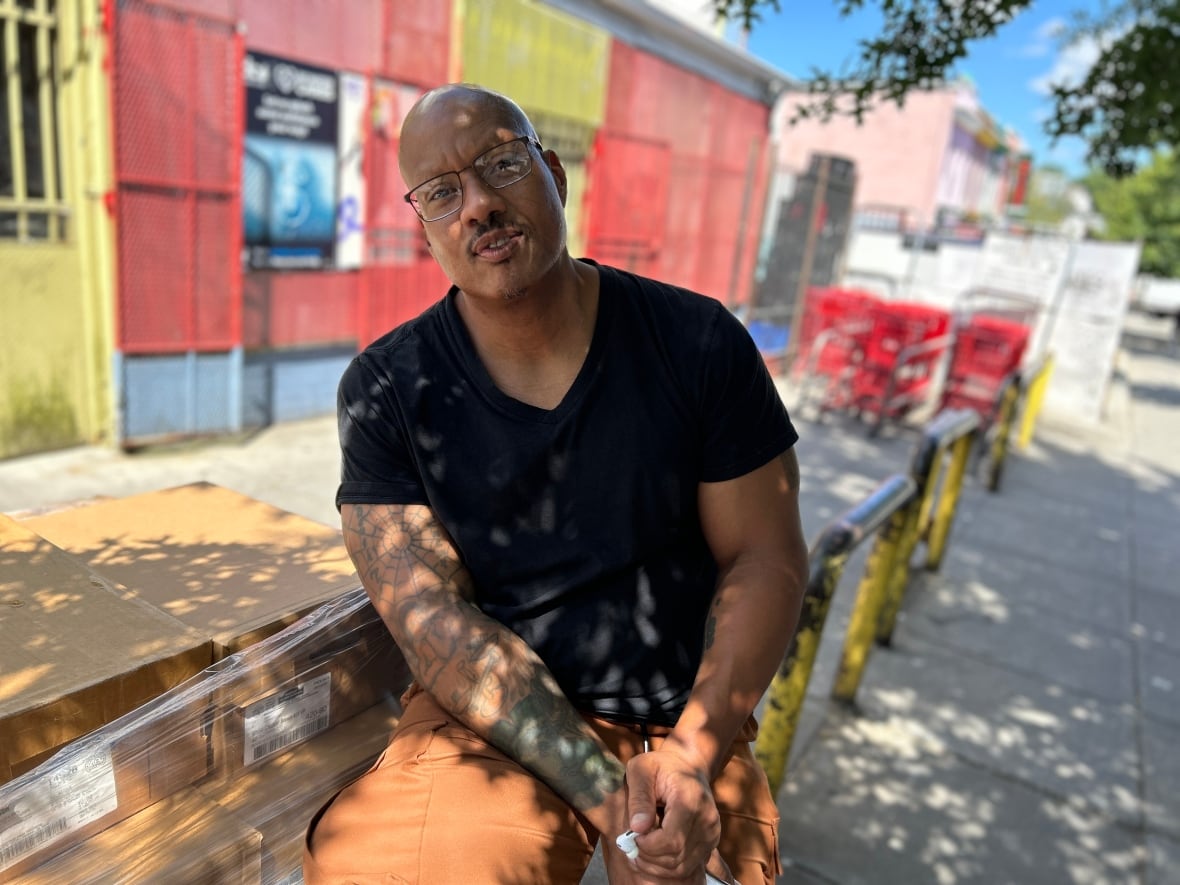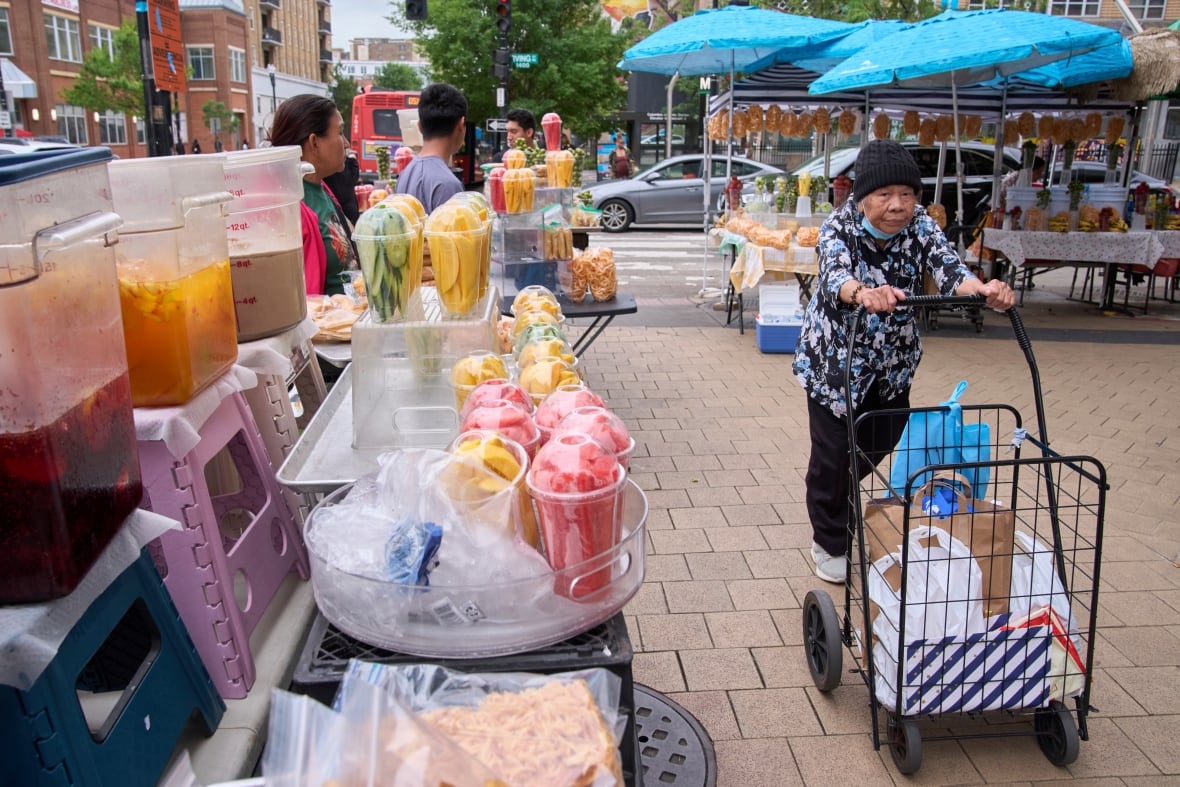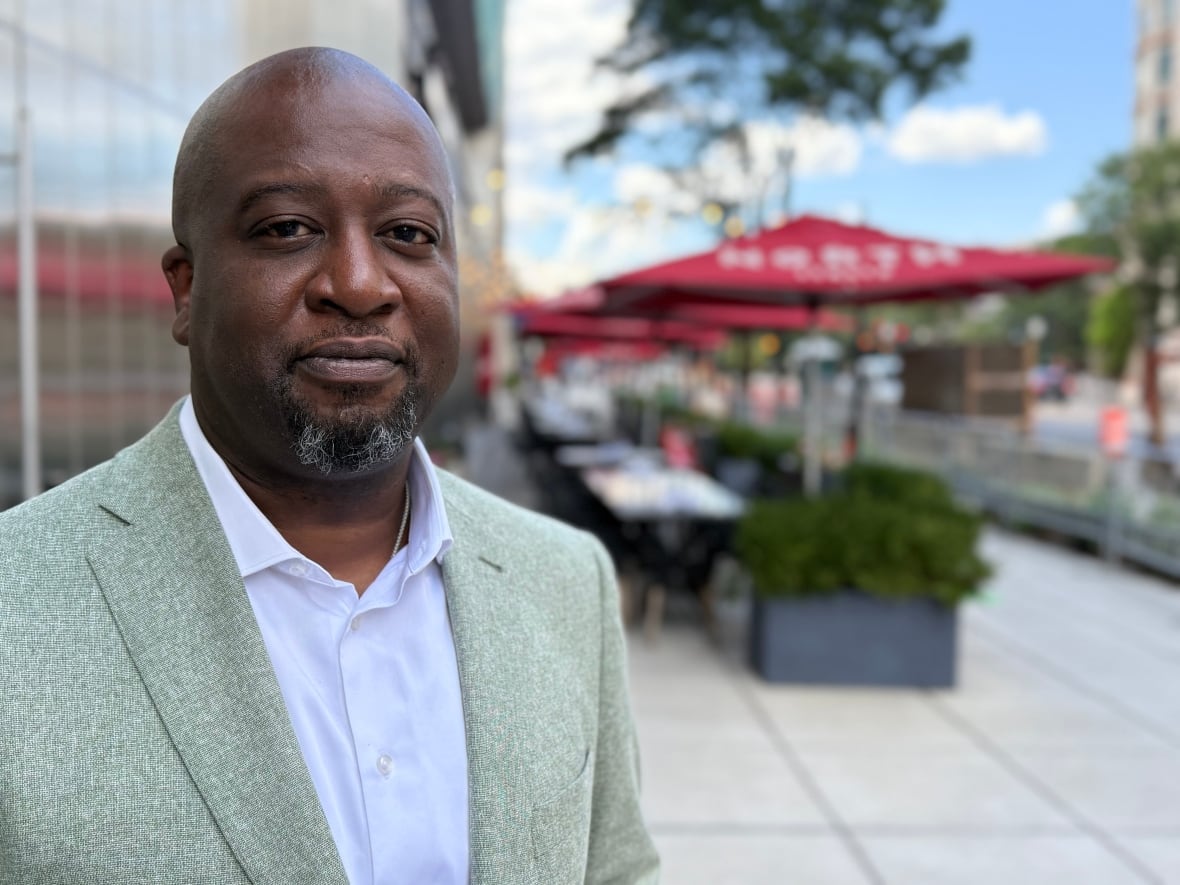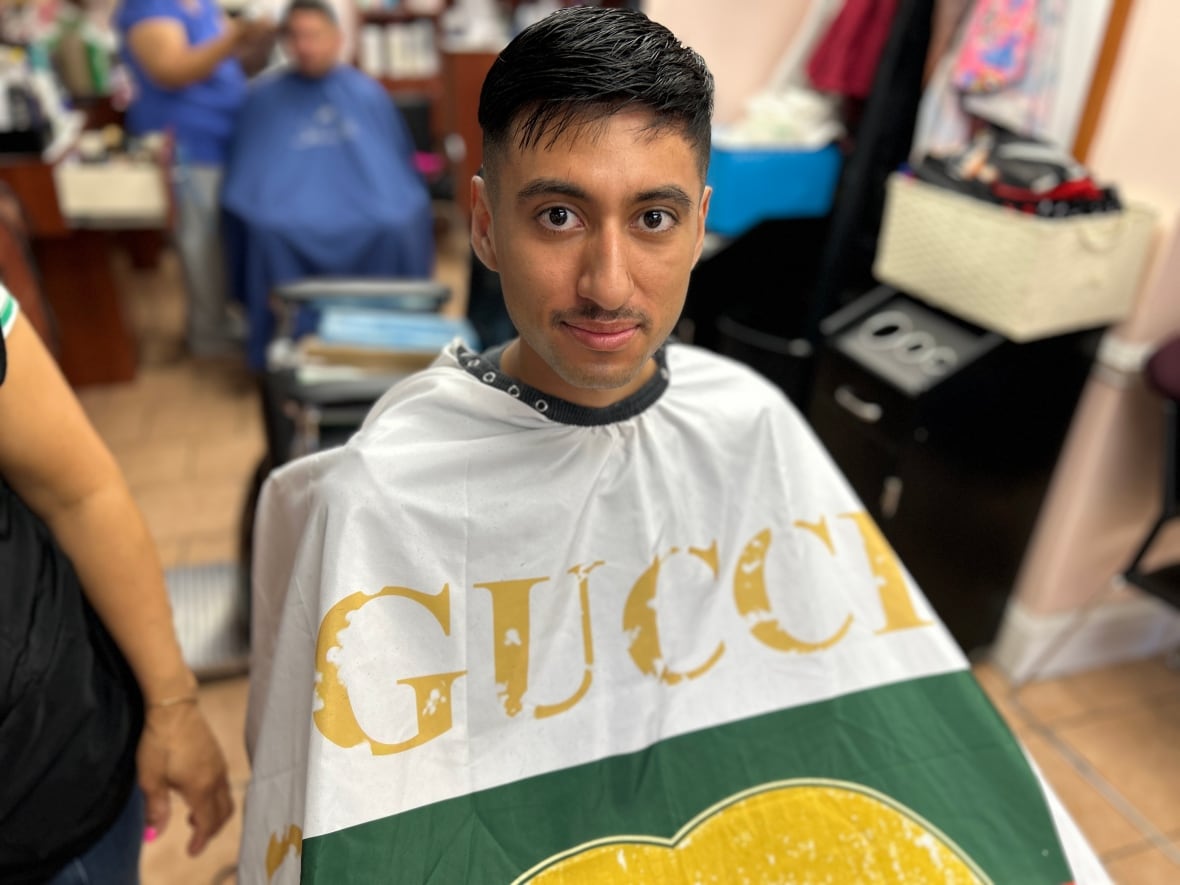Ordinarily, the streets in the lively Columbia Heights neighbourhood of Washington, D.C., would be filled with Latinos shopping or working at local stores, street vendors and restaurants. But lately, the normally vibrant community is nearly empty.
It all changed on Aug. 7, when U.S. President Donald Trump deployed federal law enforcement agencies and the National Guard into the city.
“People are just really scared to be out,” said Fernanda Rivas, whose parents own two bakeries in the area. She says the increase of law enforcement officials on the street has spooked a lot of her customers.
“This place is always busy with immigrants and everybody working here, and now we see a really big slowdown of customers coming in simply because people are just scared to come out here.”
Her family’s businesses survived the pandemic, but now they’re struggling again.
“People are coming into the bakery and just apologizing and being like, ‘I’m sorry we haven’t come in. It’s just, we’re scared to leave our homes and go to work and do anything,'” said Rivas.

The decline in shoppers is not going unnoticed.
“Less crowds, less people, less energy,” said Damon Demyers a meat delivery driver. “I haven’t seen anything like it.”
He says he’s noticed a drastic drop in shoppers at all the stores where he delivers. And while no one has told him specifically it’s because of an increase in law enforcement, Demeyers says “everybody knows what’s going on.“
Donald Whitehead, executive director of the National Coalition for the Homeless, says the deployment of the National Guard in Washington, D.C., ‘undermines’ the evidence-based work that has been done, after U.S. President Donald Trump announced Monday he would deploy the guard and take over the district’s police department, citing a crime emergency in the area.
Deportations surge under Trump
On Trump’s first day in office in January he signed an executive order directing Immigration and Customs Enforcement (ICE) agents to execute the immigration laws of the country. He claimed there are 10 million “illegal aliens” in the U.S., and said his administration aims to deport them all.
In May, White House Deputy Chief of Staff Stephen Miller gave ICE a quota of 3,000 arrests a day, which they have not been able to meet.
Last month, ICE agents were seen at Home Depots across the U.S., grabbing day labourers on their way to work. On Aug. 12, the Department of Homeland Security told Reuters that 185,000 people have been deported from the U.S. during the second Trump administration.
“Folks aren’t coming to work, specifically immigrant workers, who arguably … are the backbone of our industry,” said Shawn Townsend, president and CEO of the Restaurant Association of Metropolitan Washington, D.C., in an interview with CBC News.
Townsend says most of those workers have legitimate paperwork to live and work in the U.S., and yet they are still afraid of being deported.

“There’s a heightened level of anxiety amongst immigrant workers, rightfully so,” he said. “And I think operators are trying to figure out ways to support them the best way that they can.”
Then there are people like Elizabeth and Adriana. They came to America illegally but are still going to work every day because they can’t afford not to. CBC News is not using their last names or identifying their workplaces because the women are at risk of deportation.
“I need money,” said Elizabeth, from her job inside a local kitchen.
She has two children, but she hasn’t taken them to school this year because they’re scared, too.
Elizabeth came to America from El Salvador 20 years ago, but doesn’t have legal status to stay. Her children were born here, and she wants to apply for residency but is too afraid to do so now. Especially after hearing about ICE arresting people outside their immigration hearings.

Adriana works at a restaurant and bar just down the street. She came to America eight months ago from Guatemala. She doesn’t have any papers either, but continues to go to work because she needs the money.
“I want papers. I am good people,” said Adriana. “I want to see again my family, too.”
But she hasn’t been able to leave the U.S., because she won’t be able to return.
Front BurnerWhy has Trump taken over D.C.?
Some Latinos now carry ID to prove citizenship
Jelver Mazeriegos was born in America and lives in Arlington, Va. At a hair salon in Washington’s Columbia Heights neighbourhood, he told CBC News that he now carries his ID wherever he goes, and even takes his passport when he visits another city.
“I did take my passport with me to Florida, just in case, you know, maybe some sort of discrimination or something like that,” said Mazeriegos.

Rivas, whose family owns two bakeries, says her parents came to America legally 20 years ago, but are also really nervous while going about their daily lives.
“They definitely have encouraged us to always make sure we have our ID with us,” said Rivas. “They carry around their passports and whatever they have to identify themselves and to prove that they’re American citizens.”
She says her family has contributed a lot to this country and feels that the way they’re being treated is a slap in the face.
“It is really hard to see them feel scared, even though they are here legally, but to see my family even feel like this is a scary time to be outside and to be themselves,” Rivas said.
www.cbc.ca (Article Sourced Website)
#Trumps #deportation #crackdown #turned #D.C.s #vibrant #immigrant #community #ghost #town #CBC #News

